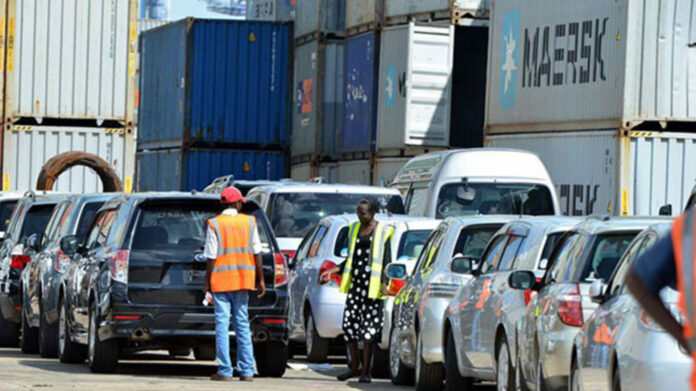Dealers in new vehicles in the country have continued to post a decline in the monthly sales with high-end brands bearing most of the pain as Kenyans continue to prefer cheaper, used imports.
According to data, brands such as BMW, Range Rover, and Land Rover indicate there were no sales in June.
For instance, Inchcape only sold two new Range Rovers and five BMWs in six months while a total of ten Land Rovers were sold in this period.
In the month of June, Mercedes moved 15 units, majorly of commercial vehicles such as trucks and buses, with saloon car sales remaining low.
According to new data, the selling of new vehicles dropped 12.6 % in the first half of the year. According to the Kenya Motor Industry Association, 11 main dealers sold 4,982 units compared to 5,697 units last year.
Isuzu East Africa was at the top of the market with 2,354 units, while its share of the total sales was 47.3%.
The next one was CFAO Motors Kenya from the merger of Toyota Kenya and DT Dobie with 1,630 units or 32.7% of the sales. Simba Corp came third with 522 units of Mitsubishi, Mahindra, and Ashok Leyland.
Trucks led with 1,754 units sold, followed by the high activity in transport, agriculture, construction, and retail. Other sales showed continued demand with 1,492 pick-ups and 513 units of medium buses, station wagons at 462 units, and prime movers accounting for 207 units.
Isuzu’s Sales and Marketing Director, Wanjohi Kangangi, still believes in locally assembled heavy commercial vehicles. Second-hand cars, however, remain a favorite for Kenyans due to their affordability, with about 6,000 to 8,000 units imported monthly.
Requirements to join Uber as a driver without owning a vehicle
Local dealers, however, are still banking on KS1515: 2019 standard to lock out imports and spur growth in local assembly.
The 2019 standard aimed at tightening inspection and regulating imports was challenged in court and remains unresolved.
Most new cars sold are Completely Knocked Down (CKD) units, which are shipped in parts and assembled locally, meaning Kenya is still not a full-fledged automaker.
It allows the import of used cars up to eight years old and second-hand cars to fulfil market demand. Second-hand cars are cheaper, with prices ranging from Sh. 800,000 to Sh. 1.5 million, while new ones start at about Sh. 2.5 million.
According to the Car Importers Association of Kenya, locally assembled cars are some Sh. 600,000 dearer than used imports, some of which are even better than new ones.
This has a resultant effect whereby Kenyans still go for imports mainly from Japan, which supplies up to 80% of these vehicles, and the UAE, UK, Singapore, and South Africa.








